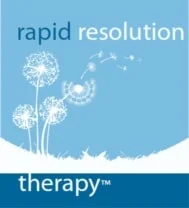Rapid Resolution Therapy - Memory Reconsolidation
Have you ever considered therapy and then decided not to do it?
Maybe because:
You thought therapy takes too much time, and you weren’t sure you’d see results.
You felt therapy costs too much.
You didn’t want to go to counseling once a week for months.
You just didn’t feel like talking about painful issues again and again.
You didn’t care about learning coping skills that take time and energy and would be forgotten in a month.
You just wanted to “forget about it.”
Well, welcome to the 21st century and a new kind of therapy that is effective and enduring – Rapid Resolution Therapy (RRT)!
What Makes RRT So Different?
It isn’t work. It’s easy!
It’s brief therapy and takes place in only 2 to 6 sessions.
It will not require you to dwell on things or talk about them in detail.
RRT follows the steps of Memory Reconsolidation, which is backed by neuroscience and found to be powerful and lasting.
Effective and Enduring Healing
In 2009, neuro-scientists made a pretty exciting discovery: Memory Reconsolidation!
Because of this research, we now know that traumatic memories don’t have to cast a shadow on the rest of a person’s life. Rapid Resolution Therapy can resolve these memories—once and forever—so that trauma survivors are free of the behavioral responses brought on by the distressing events they experienced.
Of course, you still remember what happened. However, emotions and feelings connected to the trauma no longer come up after RRT treatment.
Why is that? Because your mind is powerful! Feelings and emotions that used to arise when you would think about the traumatic incident are simply overwritten.
What Issues Can Be Treated with Rapid Resolution Therapy?
Although RRT was initially designed for survivors of sexual trauma and war veterans, it’s now generally used to resolve many types of “big T” and “little t” trauma.
Sexual Trauma or Childhood Abuse – specifically, adults who are survivors of verbal/physical/sexual abuse, witnessed or endured domestic violence, or experienced abandonment.
Natural Disasters – witnessing or being a survivor of hurricanes, earthquakes, floods, etc.
Physical Injury – having a car accident, living with chronic pain, dealing with a serious or terminal medical condition.
Major Loss – may include heartbreak or rejection, a traumatic relationship breakup (such as divorce), or the aftermath of an affair which may bring about anger problems, jealousy, or feelings of guilt and shame.
Personal Issues/Experiences – such as weight loss problems, smoking cessation, etc.
These types of traumatic experiences, and more, can all lead to a variety of reactions and psychological issues, such as:
Anxiety and social anxiety disorders, phobias, panic attacks
Obsessive thoughts, compulsive behaviors
Depression
Low self-esteem/self-worth, self-loathing, self-harm or other self-destructive behaviors
Some trauma survivors also develop a mental health condition called Post-Traumatic Stress Disorder (PTSD), characterized by flashbacks, nightmares, insomnia, and heightened reactions to situations that trigger traumatic memories.
Rapid Resolution Therapy is a unique and innovative technique for treating all these traumas. It combines the latest in neuroscience discoveries and therapy, is gentle, and does not require reliving painful experiences to help you heal.
How Exactly Does Rapid Resolution Therapy Work?
Experiencing a distressing or traumatic event affects how you see the world moving forward, though you may not be aware that it is having that effect. Unwanted memories may replay in your mind unexpectedly, disrupting your present thoughts. Certain triggers—like sounds, smells, or sights—that resemble the original experience may bring back the same intense emotions, making it feel as if you're reliving the event in the moment rather than recognizing it as something from your past.
The problem is that even though your conscious mind knows the things you’re remembering are no longer happening, your emotional mind is still reading a threat.
Rapid Resolution Therapy clears the mind by hitting the “RESET” button.
RRT Follows the Steps of Memory Reconsolidation
Reactivate target knowledge – Bring the traumatic event to mind (briefly! - I don’t want you to relive the experience).
Mismatch/Juxtaposition – Create an experience that is significantly different.
Revise via new learning – Establish a new learning experience that contradicts the original learning.
Building New Neural Pathways
You've probably heard the phrase "neurons that fire together wire together" before. What does it mean?
Our brain cells communicate through a process called synaptic transmission, where one cell releases a chemical (neurotransmitter), which is then absorbed by the next cell. This process, referred to as "neuronal firing," strengthens the connection between brain cells when they communicate frequently. As messages travel along the same pathways repeatedly, they begin to transmit more quickly, and the process becomes automatic.
When we experience trauma, our minds tend to replay the event repeatedly, causing the same neural pathways to activate and triggering the same thoughts and emotional responses. Rapid Resolution Therapy (Memory Reconsolidation) helps create new neural pathways by using techniques such as visual imagery, storytelling, and creativity.
Then, when you revisit the memory, your neurons follow the new pathway, which no longer carries the former emotional pain and reactions. And as a result, you're no longer triggered by sights, smells, or sensations that previously reminded you of the experience.
It’s similar to your computer occasionally needing its programs updated to stay current, though there is nothing wrong with the computer. RRT Memory Reconsolidation updates your mind’s data, helping you to experience peace, calm, and healing.
What You Can Expect During Rapid Resolution Therapy Sessions
During our sessions, you'll gain valuable insights into the workings of the human mind and emotions. In the process, you'll start to understand the reasons behind your feelings and behaviors. And without even noticing, your very powerful mind has begun the healing process.
As a Rapid Resolution Therapist*, my role is to guide you through this process during various sessions.
1st RRT Session – 2 to 2.5 hours
I will lead you through the Rapid Resolution process, using stories, symbolic imagery, and metaphors. All you have to do is be present and follow along.
It doesn't hurt. And you may even laugh.
Imagine us on a canoe trip: you point out the dangers ahead while I steer us safely to where we're going—clearing away what troubles you to allow your mind to heal. Your mind is incredibly powerful and can heal those things easily. As we’re moving along, you may notice a shift right away, or it may take a few hours or days.
Clients often tell me that they love that RRT is so refreshingly different, not like any other therapy they’ve done.
Check-In – 1 Week after RRT Session
I’ll check in with you via a phone call, to see how you're feeling and what changes you've noticed since our RRT session. Together, we’ll review the positive improvements in your thoughts, feelings, and emotions, and discuss any new concerns that may have come up. At that time, you can also let me know if we've achieved your goals or if there's something else you'd like to work on.
2nd Session – 1.5 hours (if needed)
Many people can resolve troubling thoughts, feelings, and behaviors caused by trauma or PTSD in just a few sessions. Others, with more complex life experiences, may require several more sessions. Rapid Resolution Therapy is considered a brief therapy technique typically completed in 2 to 6 sessions. The number of sessions needed largely depends on you, your experiences, and what you would like to address.
I’ve helped many individuals overcome challenges stemming from trauma, and my clients often talk about the peace, calm, and clarity they feel after we’ve completed RRT.
Rapid Resolution Therapy: Clear Your Mind. Change Your World.
Trauma is not part of you. It is something that happened to you.
You are strong. You are a survivor.
RRT can help you heal and take back your life. It clears the mind so that your passion, humor, wisdom, energy, logic, and joyfulness can come back into your world. You will no longer focus on the past and something that happened to you then. Instead, your mind focuses on what has value for you now.
I invite you to set up a free, 20-minute phone consultation to answer all your questions.
* I am trained and certified in RRT therapy through the Institute of Rapid Resolution Therapy in Pembroke Pines, FL.









